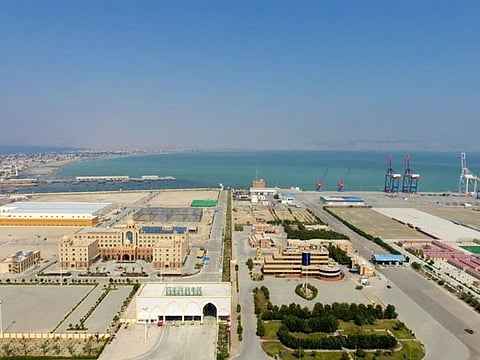Pakistan to dissolve CPEC Authority after consulting China
Decision to ensure swift implementation of China-Pakistan Economic Corridor projects

Islamabad: Pakistan’s new government is in the process of dissolving the China-Pakistan Economic Corridor (CPEC) Authority formed in 2019 after consulting Chinese officials.
Pakistani media reported that Prime Minister Shehbaz Sharif has approved in principle to abolish the CPEC Authority after consultation with China and confirmation from both sides. The government officials believe the dissolution of the authority would help fast-track the implementation of the multi-billion-dollar project.
Planning and Development Minister Ahsan Iqbal confirmed the development to local media and was quoted as saying that “this is in the interest of CPEC that the authority should be dissolved to ensure swift implementation of its projects.”
However, the minister added that the prime minister has stressed that the Chinese officials should be taken on board before finalising the dissolution of the authority to avoid sending the wrong message to China that Pakistan was rolling back CPEC.
The decision was made on the basis of a summary that the planning and development ministry moved two months ago to abolish the body, The Express Tribune reported.
The decision to discontinue the CPEC Authority came to light soon after the coalition government took office in April.
The ruling Pakistan Muslim League-Nawaz (PML-N) had opposed the formation of the authority from the beginning, citing it as a “redundant organisation with a huge waste of resources” and a “white elephant”.
The PMLN-led government plans to merge the CPEC Authority with the CPEC secretariat.
The authority was formed during Imran Khan’s tenure in 2019 through a presidential ordinance. The previous government said that the authority was established to accelerate the pace of CPEC-related projects, and unlock the potential of the interlinked production network and global value chains through regional and global connectivity. The first chairman of the CPEC Authority was retired Lt Gen Asim Saleem Bajwa. The then opposition parties, including the PML-N and Pakistan Peoples Party, had opposed the formation of the authority, claiming it would undermine the authority of parliament and may create bureaucratic hurdles and restrictions.
Sign up for the Daily Briefing
Get the latest news and updates straight to your inbox



